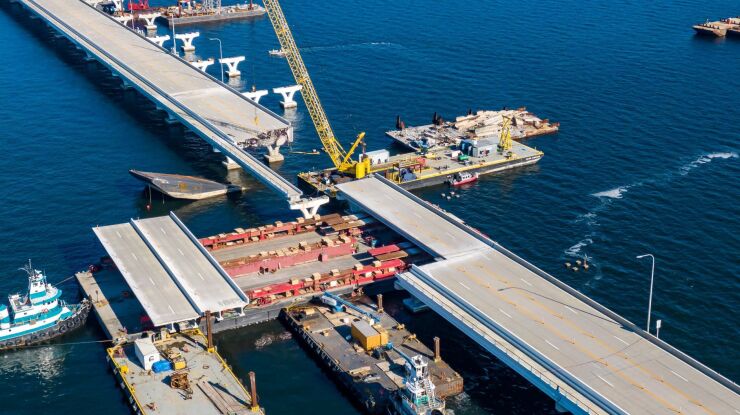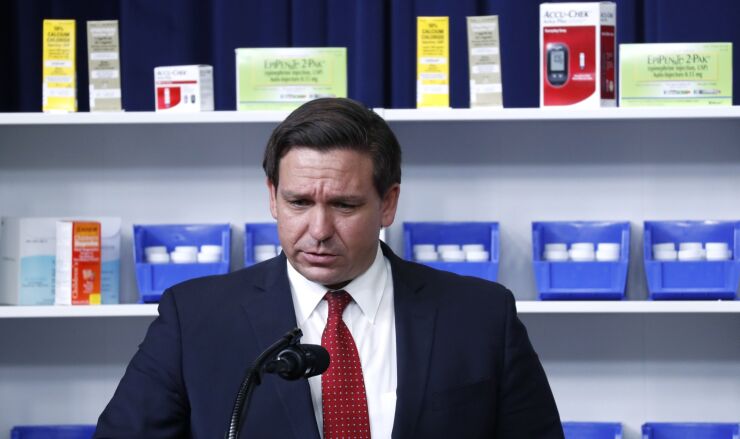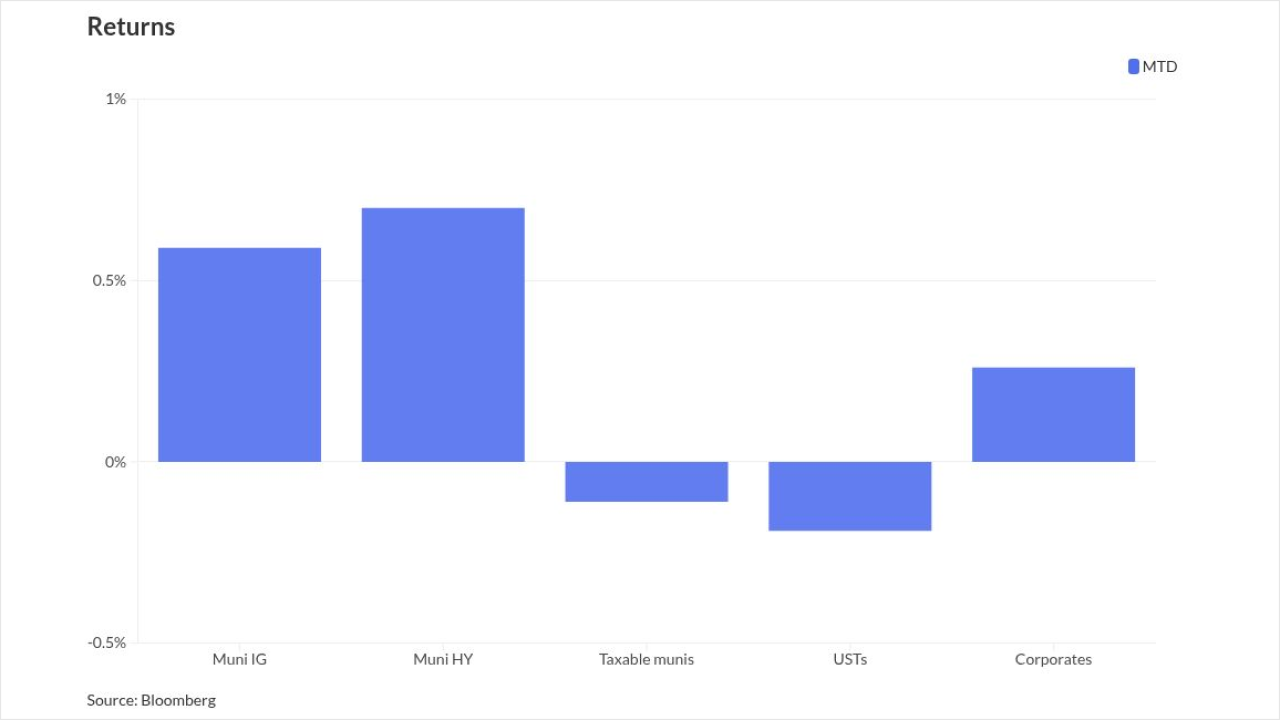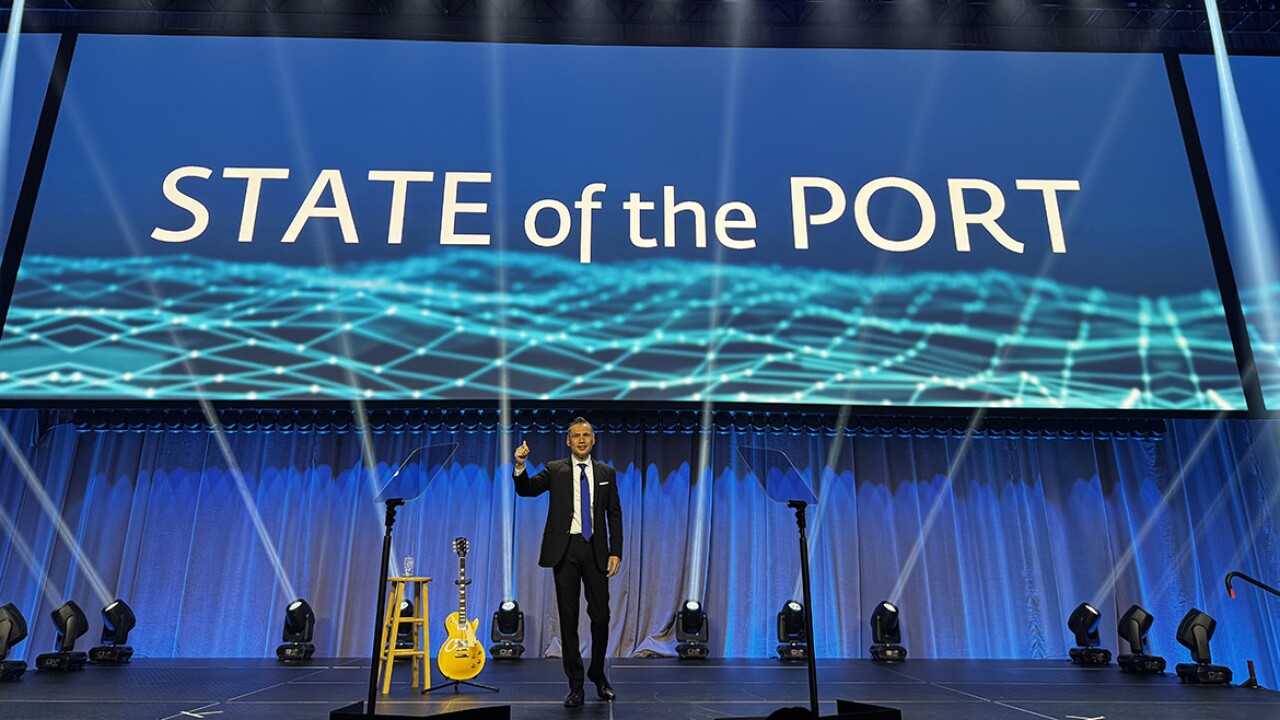Major lawsuits of interest to the municipal market will continue in several Southeast states in 2021.
They include cases challenging a South Carolina utility's bond disclosure practices, a fight over Florida toll bridge's defaulted debt, and the so-called “water wars” litigation between Florida and Georgia.

The South Carolina-owned Santee Cooper electric utility has said it may settle a class-action lawsuit over disclosure for mini bonds the utility sold to finance its programs. The litigation was spurred by the utility's failed investment in two nuclear reactors that
Santee Cooper, formally the South Carolina Public Service Authority, said in a federal court filing Dec. 3 it had reached a settlement through mediation with Murray C. Turka, the lead plaintiff. No details were given.
Turka filed a federal complaint against Santee Cooper and Lonnie Carter, the authority’s former chief executive officer, in April 2019 alleging violations of federal securities law anti-fraud provisions for failing to disclose pertinent information to investors about the nuclear project when the mini bonds were sold.
The Santee Cooper Legal Affairs Committee was told by staff on Dec. 7 that the Turka settlement amount is expected to be $2 million, plus paying for a settlement administrator to handle the claims process, which is expected to cost about $50,000.
"Our new leadership continues to make progress on greatly reducing legal expenses, paying down our debt and returning money to customers," utility spokeswoman Nicole Aiello told The Bond Buyer. "We’re encouraged by the potential settlement and will keep prioritizing the interests of the state, taxpayers and customers.
"Details are still being worked on and the final settlement will need to be approved by a federal judge," she said.
In July, a South Carolina circuit judge closed the book on a ratepayer class-action lawsuit filed by Jessica S. Cook against Santee Cooper and investor-owned South Carolina Electric & Gas over the failed nuclear reactor project.
Under settlement terms, Richmond, Virginia-based Dominion Energy, which now owns SCE&G, agreed to pay $320 million, while Santee Cooper agreed to pay $200 million in cash over three years, in addition to freezing rates over the next four years.
In mid-November, more than 1.65 million of Santee Cooper's customers began receiving refund checks that are part of settling the Cook case.
With some legal challenges solved, the state-owned utility still faces scrutiny from the state Legislature in 2021 after the coronavirus pandemic interrupted the process of deciding its fate in 2020.
Lawmakers passed House Bill 3411 postponing a decision to sell the utility for a year, establishing oversight provisions, and preventing Santee Cooper from entering employment contracts with terms longer than six months.
Santee Cooper continues to face political backlash over its part in the reactor fiasco. The utility, which owned 45% of the failed project, issued about $4.2 billion of bonds to finance its obligations.
As of Dec. 31, 2019, bonds issued for the ill-fated project were outstanding in the amount of $3.6 billion, according to Santee Cooper's 2019 comprehensive annual financial report.
Garcon Point
Holders of defaulted bonds issued to build northwest Florida's Garcon Point Bridge got a double dose of bad news about the toll revenues that repay the debt shortly before the end of the year.
The Florida Department of Transportation, which
The Garcon Point Bridge is one of two detours travelers are directed to use around the nearby Pensacola Bay Bridge, which was heavily damaged in the storm. The non-tolled State Road 87 is the second detour.
Tolls haven't been collected since Sept. 15, right before the hurricane struck the Pensacola area.

The Pensacola Bay Bridge became impassable when Skanska USA-owned construction barges came loose from moorings during the hurricane, completely destroying some portions of the bridge. Skanska was using the barges to do a $430 million widening of the bridge, which was expected to be done by the end of this year.
Repairs are underway and FDOT has targeted reopening of the bridge in March 2021. FDOT has notified Skanska that the construction company is expected to pay for damages and that it intends to bill the firm for all lost toll revenue.
Numerous private lawsuits have been filed against Skanska seeking damages.
How much bondholders get paid for lost toll revenues may depend on the outcome of new legal challenges.
On Dec. 9, Skanska filed five federal lawsuits seeking "exoneration from or limitation of liability" for damages caused by its barges. The complaints were filed in the U.S. District Court for the Northern District of Florida.
Toll revenue bonds issued to build the 3.5-mile, two-lane Garcon Point Bridge across Santa Rosa Bay have been in default since 2011 because the span never met traffic and revenue projections. The debt was accelerated in 2013.
In 2018, the bond trustee, UMB, filed a lawsuit to force the FDOT to increase toll rates on the Garcon Point Bridge. On Dec. 4, 2019, Leon County Circuit Court Judge John Cooper ordered FDOT to increase tolls.
The lawsuit, in a separate count, contended that bondholders were also owed toll revenues from the time a rate hike was first requested by the trustee in March 2015. FDOT didn't raise tolls until after it was ordered to do so by the court.
On Nov. 30, Cooper denied the claim for past toll revenues. He accepted FDOT's conclusion that the agency is not liable for paying the bonds, which are solely secured by toll revenues.
Cooper has allowed the trustee to amend its suit to determine how much FDOT should reimburse bondholders for the lost revenues because of the suspension of tolls on the Garcon Point Bridge.
In a notice to bondholders Dec. 17, UMB said the amount of bonds outstanding after taking into account payments made since the acceleration date and subsequent accrued interest and increases in accreted value will be $134.52 million as of Jan. 1.
The trustee said $2.7 million was expected to be distributed to current interest and capital appreciation bondholders on Dec. 29.
Interstate water fight
The U.S. Supreme Court is expected to schedule oral arguments in the current term, which ends in October, in Florida's federal complaint that alleges Georgia uses too much fresh water, preventing adequate flow from reaching thirsty oyster beds in the northwestern part of the Sunshine State.
Former Florida Gov. Rick Scott, now a Republican U.S. senator, issued a notice of his intention to file the current complaint against Georgia in 2013 saying it was necessary “to stop Georgia’s unchecked consumption of water” because it was threatening oysters and commercial fishing. The suit was formally filed in 2014.
Successor Gov. Ron DeSantis, also a Republican, allowed the case to proceed after he took office in January 2019. He didn't comment on the special master's report.
Between the two states, the litigation has cost a combined $113.42 million.
In a July 27 brief, the last to be filed in the case, Florida told the court it deserves relief from Georgia's "grossly unreasonable" use of water.
That use has placed the "Apalachicola Bay’s iconic oyster fisheries" and its ecosystem on the northwest coast of Florida on the brink of collapse, the brief said.

"In the end, denying Florida relief not only would spell doom for Apalachicola, it would set the bar so high for an equitable apportionment that it would effectively invite states to raid water as it passes through their borders," it said.
The U.S. Supreme Court should grant the state relief by equitably apportioning water and placing a cap on Georgia’s consumption, it concludes.
Most of Georgia and portions of northern Florida were in severe-to-extreme drought conditions in 2012 and 2013, according to the National Oceanic and Atmospheric Administration.
Long before the current litigation commenced, Florida and Georgia argued for decades about whether water rights should be allocated to each state for water that flows through the Apalachicola-Chattahoochee-Flint River Basin, which is a network of rivers, dams, and reservoirs that begins in northern Georgia and ends in the Florida panhandle, as Georgia explained in its brief in June.
Georgia contended the benefits of a cap would be small and speculative; that the costs of a decree enacting a cap would be massive to Georgia; and that Florida cannot obtain a decree without proving its case on the merits.
"Florida is wrong to claim that denying its request for a decree would give Georgia 'free rein to consume as much as it wants, regardless of the consequences,'” Georgia's attorneys wrote.
Pursuing the case has cost Florida more than Georgia. Both are Republican-led states.
"To date, the department has spent $64.4 million on this litigation," Weesam Khoury, press secretary for the Florida Department of Environmental Protection, told The Bond Buyer Dec. 8. DEP is a plaintiff in the case along with Florida’s Attorney General Ashley Moody.
The litigation has cost Georgia $49.02 million for attorney's fees and related costs, Katie Byrd, spokeswoman for Attorney General Chris Carr, said via email on Dec. 14.
In December 2019, Special Master Judge Paul J. Kelly said in his report that Florida should be denied relief. Although Florida pointed to harm in the oyster fishery collapse, Kelly said he didn't find that Georgia caused that harm by "clear and convincing evidence."
“Although Georgia’s use of the Flint and Chattahoochee Rivers has increased since the 1970s, Georgia’s use is not unreasonable or inequitable," Kelly concluded.
Kelly was appointed as the second special master in the case on Aug. 9, 2018, succeeding Maine attorney Ralph Lancaster.
In the coming year, the high court will hear arguments for the second time.
Justices first heard arguments in 2018, ruling in a 5-4 decision that the evidence led them to conclude that Florida had met its initial burden with respect to a remedy, and that extra water flowing from Georgia would “significantly redress the economic and ecological harm that Florida has suffered.”
The court ruled that then special master Ralph Lancaster had applied “too strict a standard” when he said that he didn’t believe that the court could determine how much water would be appropriate for Florida to receive a significant benefit from a cap on Georgia’s use of water from the basin.
That ruling led to the appointment of Kelly for a second round of consideration into Florida's complaint.
On Dec. 16, the Florida Fish and Wildlife Conservation Commission voted to close Apalachicola Bay to oyster harvesting through 2025 because of its waning population of the molluscs. The area typically produces 90% of the state’s oysters and 10% of the nation’s supply.





